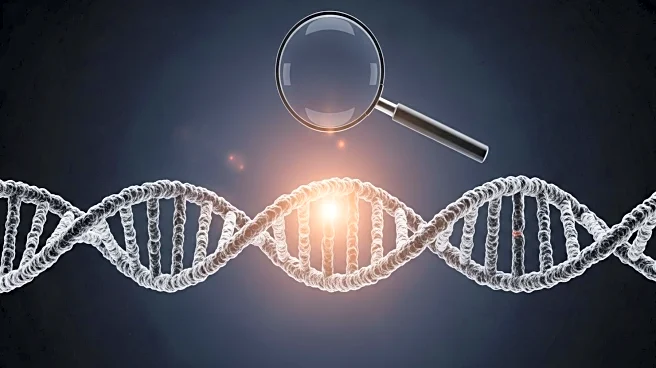What is the story about?
What's Happening?
Recent research has uncovered that naked mole-rats possess superior DNA repair mechanisms contributing to their extended lifespan. Unlike other rodents, naked mole-rats can live up to ten times longer, with their genetics showing similarities to humans. The study, published in Science, reveals that naked mole-rats have an enhanced ability to maintain DNA integrity through repair mechanisms, particularly homologous recombination (HR). The research team identified that the DNA sensor cGAS plays a crucial role in potentiating DNA repair in naked mole-rats, contrasting its suppressive function in humans and mice. The study demonstrated that small sequencing changes in naked mole-rat cGAS significantly impact longevity, suggesting potential applications in human aging research.
Why It's Important?
The findings are pivotal in understanding the genetic basis of longevity, offering potential pathways for enhancing human lifespan through improved DNA repair mechanisms. By identifying the role of cGAS in DNA repair, the study opens avenues for developing interventions targeting DNA repair pathways to promote longevity and reduce age-related deterioration. This research could lead to breakthroughs in aging-related diseases and contribute to the development of therapies aimed at extending healthy human lifespan.
What's Next?
Further research may focus on translating these findings into practical applications for human health, exploring the potential of cGAS-targeted therapies in promoting longevity. Scientists may investigate the feasibility of modifying human DNA repair mechanisms to mimic those of naked mole-rats, potentially leading to innovative treatments for age-related conditions. Collaborative efforts between geneticists and biotechnologists could accelerate the development of such interventions.
Beyond the Headlines
The study underscores the importance of comparative genomics in uncovering evolutionary adaptations that can inform human health advancements. Ethical considerations regarding genetic modifications and their implications for human longevity are crucial, as they raise questions about the societal impact of extending human lifespan.















